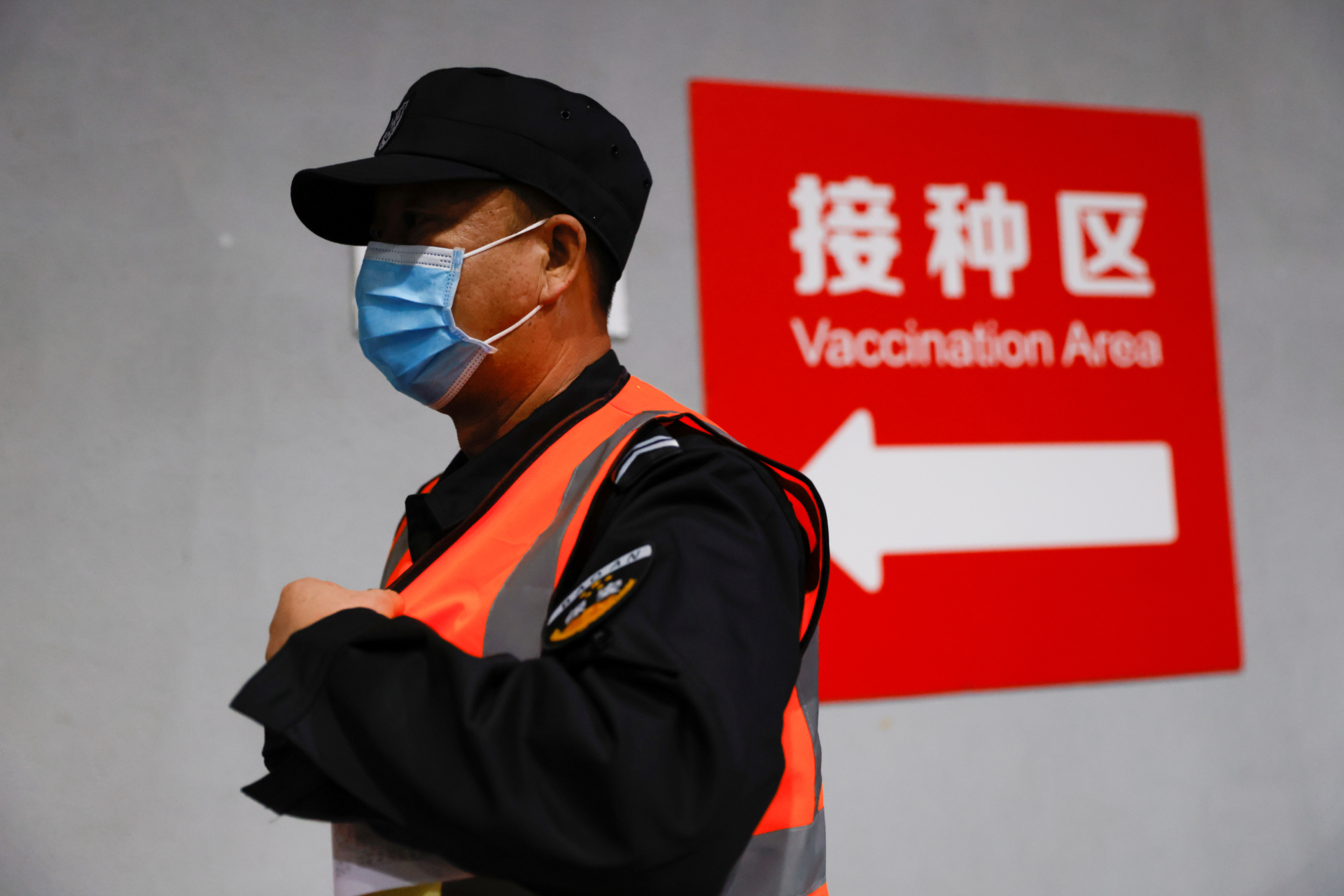Beijing promotes vaccine nationalism and new COVID-19 conspiracies
Chinese state media, and even some of China’s top scientists, are promoting messages to undermine confidence in non-Chinese vaccines. At the same time, Beijing is again spreading conspiracy theories about the origins of COVID-19.

China’s response to COVID-19 has followed roughly three phases:
- Failure in the first few weeks due largely to information control
- Harsh but effective measures to contain the virus
- All-out efforts to retake the narrative of governmental failure.
Efforts to retake the narrative have taken many forms, from propaganda campaigns to mass testing drives to diplomatic initiatives to deliver PPE and vaccines around the world (See our The China Project 2021 Red Paper for details.)
Conspiracy theories and vaccine nationalism appear to be the latest form. Ever since March 2020, when Chinese Foreign Ministry spokesperson Zhào Lìjiān 赵立坚 suggested the U.S. Army might have “brought the epidemic to Wuhan,” conspiracy theories have been part of Beijing’s arsenal, but they now appear to be gaining emphasis — and a new focus on undermining confidence in non-Chinese vaccines.
- China’s vaccine diplomacy has taken “an anti-vax turn,” Quartz reports, with multiple state media outlets playing up news of elderly Norwegians who died shortly after receiving the Pfizer-BioNTech COVID-19 vaccine. The coverage has been “inaccurate at best,” Quartz says, because Norwegian officials have twice “reiterated that there was no evidence of a direct link between the vaccine and the deaths.”
- A popular state media anchor with CGTN, Liú Xīn 刘欣, hyped up news of 10 Germans who died shortly after receiving the vaccine, but there is similarly no evidence linking the deaths to the vaccine. Zhao Lijian retweeted Liu’s message.
- The nationalistic Global Times tabloid has “published more than ten reports in the past week critical of vaccines and inoculation schemes in the West,” per Reuters.
- Senior Chinese scientists such as Chinese CDC director George Gāo Fú 高福 and famous respiratory specialist Zhōng Nánshān 钟南山 have also raised concerns about the safety of non-Chinese vaccines, the Washington Post reports.
The surge in vaccine nationalism follows news from clinical trials in Brazil that CoronaVac, one of the leading Chinese-developed vaccines, has significantly lower efficacy than vaccines by Pfizer or Moderna. At the same time, the Chinese Foreign Ministry is insinuating that COVID-19 may have originated at a U.S. biological lab at Fort Detrick.
Will Biden’s new approach to public health change China’s behavior?
Most of China’s COVID-19 disinformation has happened during the Trump presidency, and can be seen as a reaction to conspiracies that Trump officials enthusiastically promoted. Zhao Lijian only shot off his tweet about the U.S. Army after American politicians such as Senator Tom Cotton had spent weeks spreading disinformation about what happened in Wuhan. The recent Fort Detrick line was put forward in direct response to a U.S. State Department “fact sheet” released as one of the last acts of Secretary of State Mike Pompeo, possibly the most hated man in Beijing.
President Biden has recommitted the U.S. to the global public health response mechanisms that President Trump had abandoned, including by rejoining the World Health Organization and committing to join the COVAX vaccine distribution initiative.
Today, China graciously welcomed the change in U.S. behavior, with the Foreign Ministry praising (in English, Chinese) the American government for returning to WHO and the Paris climate accord.
However, even if the Biden administration doesn’t play a leading role in criticizing Beijing over public health, many Chinese officials could remain on the defensive about China’s public health record. Stoking nationalism about vaccines and spreading disinformation about the origins of the virus are familiar tools for Chinese officials, and the Biden team might have a difficult time persuading them to take a different course if they choose to make an effort on that front.
More on vaccine diplomacy and current U.S.-China relations:
- Pakistan: China to gift half million doses of Sinopharm vaccine / Reuters
- India’s vaccine diplomacy in South Asia pushes back against China / Reuters
“India will give millions of doses of COVID-19 vaccine to South Asian countries in the next few weeks, government sources said on Thursday, drawing praise from its neighbours and pushing back against China’s dominating presence in the region.” - Vaccines become latest frontline in China’s campaign to win hearts of Taiwanese / Reuters
“Beijing is touting a state programme that gives Taiwanese in China priority for COVID-19 vaccines, prompting concern within Taiwan’s government which sees it as the latest Chinese tool to win over the island’s population.” - Biden cabinet picks don’t look like doves on China, Chinese experts say / Caixin (paywall)
“Chinese experts including Caixin columnists have analyzed the new cabinet’s policy priorities, particularly in regard to China. They believe that the ‘elite’ Team Biden will continue to be tough on China with a focus on ‘intense competition.’” - Biden administration calls China sanctions on Trump officials ‘unproductive and cynical’ / Reuters
Yesterday on The China Project: Beijing places sanctions on Trump administration officials.






